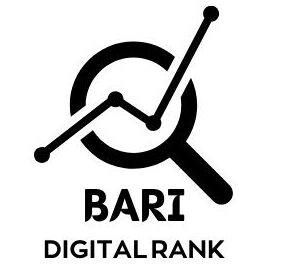Table of Contents
I. Introduction || “Advanced Keyword Research Strategies” ;
Keyword research is the cornerstone of effective SEO. It’s not just about finding words and phrases; it’s about understanding what your audience is searching for and why. Advanced keyword research strategies go beyond basic keyword discovery and delve into the intricacies of user intent, competitive analysis, and semantic search. By mastering these strategies, you can significantly improve your website’s visibility and drive more targeted traffic.
One of the primary goals of advanced keyword research is to uncover hidden opportunities that your competitors might have overlooked. This requires a deep understanding of your target audience and the ability to predict their search behavior. Advanced tools and techniques can help you identify these opportunities and capitalize on them, ensuring that your content meets the needs of your audience and ranks well in search engines.
Ultimately, advanced keyword research aims to create a solid foundation for your SEO strategy. By focusing on the right keywords, you can attract more qualified traffic, improve your conversion rates, and achieve your business goals.
II. Understanding User Intent ;
User intent is a critical component of advanced keyword research. It refers to the underlying goal that a user has when they perform a search. Understanding user intent allows you to choose keywords that align with what your audience is actually looking for, which can significantly improve your chances of ranking well and driving targeted traffic to your site.
There are four main types of user intent: informational, navigational, transactional, and commercial. Informational intent is when a user is looking for information on a specific topic. Navigational intent is when a user is looking for a particular website or page. Transactional intent is when a user is looking to make a purchase or complete a transaction. Commercial intent is when a user is looking to compare products or services before making a purchase decision.
Aligning your keywords with user intent requires a deep understanding of your audience and their needs. Tools like Google Analytics and Google Search Console can help you analyze user behavior and identify the types of searches that are driving traffic to your site. By using this data, you can choose keywords that are more likely to meet the needs of your audience and drive higher engagement.

III. Using Advanced Tools and Techniques ;
Advanced keyword research tools can provide valuable insights that go beyond basic keyword discovery. Tools like SEMrush, Ahrefs, and Moz offer a wide range of features, including competitor analysis, keyword difficulty scoring, and backlink tracking. These tools can help you identify high-potential keywords, analyze your competition, and track your progress over time.
Competitor analysis is an essential part of advanced keyword research. By analyzing the keywords that your competitors are ranking for, you can identify gaps in your own strategy and uncover new opportunities. Tools like SEMrush and Ahrefs allow you to enter a competitor’s URL and see the keywords they are ranking for, as well as their backlink profile and content strategy.
Another advanced technique is leveraging Google Search Console for insights. Google Search Console provides data on the keywords that are driving traffic to your site, as well as your site’s performance in search results. By analyzing this data, you can identify trends, optimize your existing content, and discover new keyword opportunities.

IV. Long-Tail Keywords ;
Long-tail keywords are longer, more specific keyword phrases that tend to have lower search volume but higher conversion rates. These keywords are often less competitive than short-tail keywords, making them easier to rank for. Targeting long-tail keywords can help you attract more qualified traffic and improve your chances of ranking well for niche topics.
The benefits of targeting long-tail keywords include lower competition, higher relevance, and better targeting. Long-tail keywords are often more descriptive and specific, which means that they are more likely to match the search intent of users who are closer to making a purchase. By targeting these keywords, you can attract users who are more likely to convert.
Finding long-tail keyword opportunities requires the use of advanced keyword research tools. Tools like Google Keyword Planner, SEMrush, and Ahrefs can help you identify long-tail keywords that have low competition and high relevance to your business. Once you have identified these keywords, you can integrate them into your content strategy to improve your chances of ranking well.

V. Semantic Search and LSI Keywords ;
Semantic search is an advanced search technique that aims to improve search accuracy by understanding the contextual meaning of search queries. Latent Semantic Indexing (LSI) keywords are terms that are semantically related to your main keyword and help search engines understand the context of your content. By incorporating LSI keywords into your content, you can improve your chances of ranking well for a wider range of related search queries.
The importance of semantic search in modern SEO cannot be overstated. With the rise of voice search and natural language processing, search engines are getting better at understanding the context and intent behind search queries. This means that simply targeting exact-match keywords is no longer enough. You need to create content that is rich in context and relevance.
Identifying and using LSI keywords involves analyzing your main keyword and identifying related terms that can help improve the context of your content. Tools like LSIGraph and Google’s related searches can help you find LSI keywords that are relevant to your main keyword. By incorporating these keywords into your content, you can improve your chances of ranking well for a wider range of related search queries.

VI. Keyword Clustering ;
Keyword clustering is the process of grouping related keywords into clusters based on their semantic similarity. This technique helps you create more organized and relevant content by focusing on topics rather than individual keywords. By clustering your keywords, you can improve your content strategy and increase your chances of ranking well for a broader range of search queries.
The concept of keyword clustering is based on the idea that search engines are moving towards a more topic-based approach to ranking content. Instead of targeting individual keywords

VII. Analyzing and Refining Keywords ;
Continuous monitoring and analysis of keyword performance is crucial for successful SEO. Regularly reviewing your keywords allows you to spot trends, measure your progress, and adjust your strategy as needed. This ongoing process helps you stay competitive and ensures your content remains relevant and effective.
Using analytics to fine-tune your keyword strategies involves keeping track of key metrics like search volume, competition, and click-through rates. Tools such as Google Analytics and Google Search Console offer valuable insights into how your keywords are performing, helping you identify areas that need improvement. By examining this data, you can make well-informed decisions about which keywords to prioritize and how to optimize your content.
Adapting to changes in search engine algorithms is another vital aspect of keyword analysis. Since search engines frequently update their algorithms, staying informed about these changes is essential for maintaining your rankings. By regularly analyzing your keywords and adjusting your strategy accordingly, you can ensure that your content continues to perform well and remains relevant.
VIII. Case Studies and Examples;
Real-world examples of successful advanced keyword research offer valuable insights and inspiration for your own strategies. Case studies show how other businesses have utilized advanced keyword research techniques to enhance their SEO and achieve superior results. By learning from these examples, you can apply similar strategies to your business and attain similar success.
Case studies that highlight the impact of advanced strategies usually include a detailed examination of the methods used, the outcomes achieved, and the lessons learned. These case studies provide practical insights into the effectiveness of various strategies, helping you determine the best approaches for your business. By studying these examples, you can gain a deeper understanding of advanced keyword research and apply these lessons to your SEO strategy.
IX. Common Mistakes to Avoid ;
Avoiding common mistakes is key to effective keyword research. Some of the most frequent errors include neglecting user intent, overlooking long-tail keywords, and failing to update keyword strategies regularly. Being aware of these mistakes and taking steps to prevent them can enhance your keyword research and lead to better results.
By focusing on user intent, targeting long-tail keywords, and keeping your keyword strategies current, you can improve your SEO efforts and achieve better outcomes.
X. Conclusion ;
n conclusion, keyword research is a fundamental aspect of effective SEO. Understanding the importance of user intent, leveraging advanced tools and techniques, and integrating long-tail and LSI keywords are essential strategies for optimizing your content. By continuously analyzing and refining your keyword strategy, you can stay ahead of search engine algorithm changes and maintain high search rankings.
Implementing these advanced keyword research strategies will not only help you attract more targeted traffic but also improve your conversion rates and overall online visibility. Remember to learn from real-world case studies and avoid common mistakes to ensure your efforts are successful.
By mastering advanced keyword research, you can build a strong SEO foundation that supports your business goals and drives sustained growth. Stay proactive in adapting to industry changes and keep refining your approach to stay ahead in the competitive world of SEO.

Final thoughts:
SEO is an ever-evolving field, and staying updated with the latest trends and techniques is crucial. Advanced keyword research is not a one-time task but an ongoing process that requires dedication and continuous learning. Embrace these strategies, and you will see significant improvements in your website’s performance and search engine rankings.
Good luck with your keyword research, and may your SEO efforts lead to great success!
